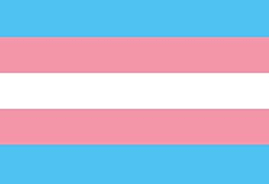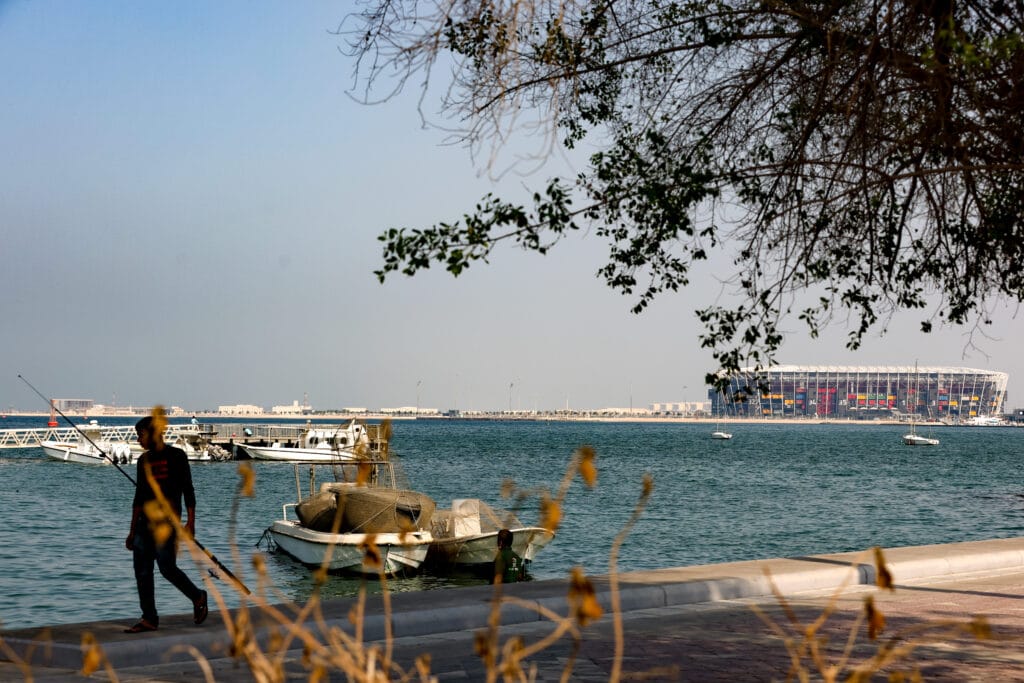Since its publication nearly a decade ago, Benjamin Alire Sáenz’s Aristotle and Dante Discover the Secrets of the Universe has been widely regarded and accepted as a seminal young adult novel in the queer literary canon. Sáenz’s lyrical and beautiful novel about two Latinx boys becoming best friends and falling in love has been beloved among queer readers of all ages in the years since, prompting a sequel that released October 15, 2021, Aristotle and Dante Dive into the Waters of the World. I spoke with Sáenz via email about the new novel, his unique writing style, and what readers can expect from the new book.
I want to start with a simple question—why a sequel to Aristotle and Dante and why now?
In the years after Aristotle and Dante Discover the Secrets of the Universe was published, I had the awful feeling in a dark corner of my heart that, in the novel, I had stopped short of exploring so many things that mattered—that mattered to me, and that mattered to other people as well. The first book turned very much inward and explored Ari and Dante facing themselves and facing each other. The book was intimate. It ended at the very moment that Ari acknowledged the love he had unknowingly buried deep inside him. The novel I wrote was deliberately sweet and tender—but it failed to examine the serious implications of a love between two boys in 1987. It ends at the easiest part of their relationship. Falling in love for the first time foregrounds Ari’s and Dante’s innocence and sense of wonder.
But staying in love is quite another thing. I don’t mean to be so critical of the first Ari and Dante book, but it’s rather romantic and doesn’t deal with the realities of a relationship between two boys in the late eighties. The sequel turns outward, toward the culture, the society, the country, and the world in which the boys live—the world that helps define them and is often a kind of prison that impedes their freedom.
Ahead of its release, there has been a re-examination of the first Aristotle & Dante book and some discussion of the sequel. Without spoiling either book, can you discuss the storytelling choices you made and why? What do you have to say to readers who might find this subplot transphobic?
I understand why readers might find this subplot in Aristotle and Dante Discover the Secrets of the Universe transphobic—and to those who do, and who feel hurt and angry and disappointed in me, I offer my apologies. I have learned a lot from the trans community since the first book came out, and I am still learning. And I understand that just because I offer my apologies does not mean I am entitled for others to accept my apologies.
When it comes to Aristotle and Dante Dive into the Waters of the World, I brought everything I had learned to the way I wrote about this existing subplot. I did my best to honor the trans character by giving her a new name, Camila, and by having Ari show respect and reverence for her life in a way that is true to his character, an eighteen-year-old boy in the 1980s who still has a lot to learn about life. And, like Ari, I’m sure I still have more to learn, too. I take responsibility for the things I say, write, and do, and offer no excuses.
I did my best to honor the trans character by giving her a new name, Camila, and by having Ari show respect and reverence for her life in a way that is true to his character, an eighteen-year-old boy in the 1980s who still has a lot to learn about life.
Aristotle and Dante Dive into the Waters of the World is set against the backdrop of the AIDS pandemic. Considering the two books are so close together in time, why did you choose to incorporate it in the sequel, but not the first novel?
The AIDS pandemic was something that affected me personally, just as it affected millions of people. I lost a mentor, Arturo Islas, a brother, Donaciano Sanchez, and a very close friend, Norman Campbell Robertson. The AIDS pandemic was a watershed moment for the gay community and, to my mind, it was in many ways the beginning of the Gay Rights movement as we know it.
In addition, since we are experiencing yet another pandemic, I thought my readers could draw their own parallels between the AIDS pandemic and the pandemic they are living through. I wrote most of the book during the early COVID-19 pandemic.
Elephant sitting on the living room couch
Much of Aristotle and Dante Dive into the Waters of the World deals with Aristotle discovering who he is as a man. How did this central theme develop for you and why do you think it’s relevant for young readers?
We are obsessed with masculinity and the toxic forms it takes and the way it affects our society. Manhood is the elephant sitting on the living room couch. And of course, it’s relevant for younger readers. Remember being in high school? The great thing about being gay is that you have an opportunity to pause and think about what kind of man you want to be because I knew that I would never be a man in the way that the heterosexual world defined it.
Toxic masculinity is what rules in our politics, our police departments, the way we organize our educational system, our family lives, the way we do business. And the theme that runs alongside that is the issue of feminism.
The young women in this novel play a big role. They’re not just sidekicks to Ari and Dante. They’re strong and they know themselves, know who they are, know how to communicate and confront, know how to fight for what they believe. And these young women help Ari and Dante become men. And so do Ari and Dante’s mothers. It was my mother who taught me how to be a man—much more than my father. And it was my two sisters who had the kind of strength that we, the five brothers, seemed to lack. They were the organizers of our family life. At one point in the novel, Ari asks Dante’s father, “What would we do without women?” Dante’s father answers, “We’d be screwed, that’s where we’d be.”
“The great thing about being gay is that you have an opportunity to pause and think about what kind of man you want to be, because I knew that I would never be a man in the way that the heterosexual world defined it.”
“Writing those parts made me feel beautiful, really beautiful”
Related, the sequel finds Ari and Dante navigating a new element of their relationship including their respective queer identities. I found this to be one of the more charming and sweet parts of the book. What do you want readers to take away from these moments?
I must admit that I still wince at the word “queer.” I know that I am in the minority here, but for me, that word conjures up a lot of hate. It isn’t that I don’t accept the fact that young people and intellectuals use the word with pride. Nor am I offended when someone applies that word to themselves. Most members of the LGBTQ+ community seem extremely comfortable with the word. Young people understand the power of words when it comes to their identities. But I carry the history of that word inside me, and in my body, and in voices I remember. And those voices are the voices of cruelty and bigotry. I’m 67 years old and I don’t call myself queer. I call myself a gay man.
And yes, I agree with you about these parts of the book. Ari and Dante are learning how to love and what that means. They’re learning about their own bodies and their own desires—and it’s funny and it’s tender and there’s nothing dirty about that. It’s never dirty. It’s pure. But our religious institutions and our duplicitous political culture and even our educational institutions make something dirty out of it. I loved writing those sections of the book because writing those parts made me feel beautiful. Really beautiful.
“Growing up is also about loss, after all. Growing up is about learning to let go and what to hang on to.”
Without spoiling anything, Ari experiences a big loss in the sequel. What led you to this storytelling choice and why did you place it at the point in the novel where you did?
The event seemed necessary to me. So many young people experience losses and I wanted to show Ari live through and transcend that loss—because those moments of loss make us aware of what love is, and makes us aware of what we’re really made of. And that had to occur early enough in the novel so we could see Ari’s acceptance and experience his pain, and the slow healing after such a loss. Growing up is also about loss, after all. Growing up is about learning to let go and what to hang on to. This novel would have been all the poorer without that event. It seemed so right and even necessary to me in this novel—just like the car accident seemed right and central to the original book.
Additionally, the structure of the sequel is a bit different from the original. While they’re both told in parts, Aristotle and Dante Dive into the Waters of the World is broken down into more acts and uses epigraphs to guide each section, reinforcing the “cartographer” theme of the novel. How did you come to this structure and theme for Ari’s journey?
God, I wish I could answer that question. I rely on instinct and the epigraphs just felt right. And this novel may be a sequel, but why repeat the same things and the same themes and the same structures that were in the first novel? I think every novel has to justify itself and it has to be unique. Things have changed. For the characters of the book and for the author. This is a more mature novel—and that’s the good news and the bad news. If you’re fixated on the first novel, then you won’t allow yourself to experience the changes that have occurred. Change is what makes life interesting. Change is inevitable. Change is the only constant in our lives.
“I think every novel has to justify itself and it has to be unique. […] This is a more mature novel—and that’s the good news and the bad news.”
You’re known for your unique way of writing dialogue with a tendency not to rely on speaker tags. How do you build out the scenes so that the reader will understand who is speaking? How does this change when there’s more than two people speaking?
I find not using speaker tags a challenge. It’s an art. I don’t mean to be coy, I really don’t—but if you study those sections carefully, you’ll discover the secret. If it’s more than one person, well, that’s part of the art of dialogue. You know, when I taught creative writing, dialogue was very difficult for my students. But I always enjoy writing dialogue. It’s what makes my characters seem less like characters. One of my editors told me I didn’t write characters at all. “You write people,” she said.
“They always ask me if I know Dr. Seuss.”
You’ve written for younger readers and adults as well as both poetry and prose. What are some of the joys and challenges of writing different forms for different age categories? How do you know what project will fit which form or audience?
I’m writing a book of poems right now, and poetry remains my favorite genre to write. It brings me a type of peace and makes me feel centered. Poetry makes me meditate on life in the way no other genre allows me to do. I feel comfortable in my own skin when I write poetry. For a man who’s been writing for more than thirty years, I’m not always self-assured and confident.
Writing different genres and age groups demands that I respond to the different sides of me. I can tap into the little boy in me. I can tap into the high school kid in me. I can tap into the hurt and hopeful man in me. I’m able to manage to do that. But I don’t know how it happens.
I love writing for little kids. And I love reading to them. My favorite audience of all: first graders. They are simply amazing. They always ask me if I know Dr. Seuss. I love their uncensored responses to what I read to them. Apart from the Ari and Dante books, my most successful book is a children’s bilingual book entitled A Gift From Papa Diego. It was published in 1998. It’s been in print for 23 years and it’s still selling and reaching new audiences of children.
Is there anything else you’d like to add?
Oh gosh, yes, I have to say that I still feel that it’s a great privilege to be a writer. I got to be what I wanted to be—an artist and a writer. I’ve lived my dream. That doesn’t mean that life’s been easy—but it’s not supposed to be easy. And I’m very grateful to have an audience, be that audience small or very large. I’ve learned that I’m not entitled to have an audience just because I wrote a book. I’ve always written the books I needed to write, and I write because I need to write. That’s how I’ve survived. I did with my life what I was supposed to do. I am the luckiest.
Aristotle and Dante Dive into the Waters of the World
by Benjamin Alire Sáenz
Simon & Schuster Books For Young Readers
Hardcover, 9781534496194, 528 pp.
October 2021


 A Trans/Non-Binary Support Group is offered by The Spahr Center every Tuesday, 7-8:15, for adults 18+. For more information, contact Sam at
A Trans/Non-Binary Support Group is offered by The Spahr Center every Tuesday, 7-8:15, for adults 18+. For more information, contact Sam at 


